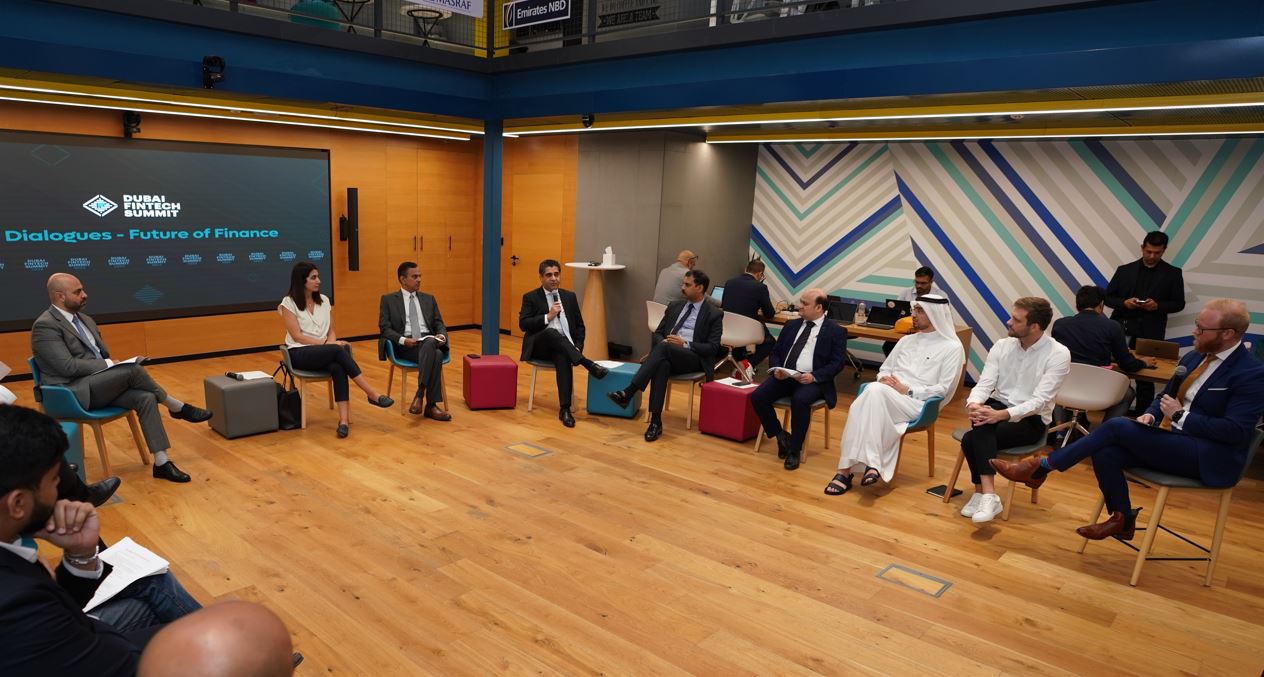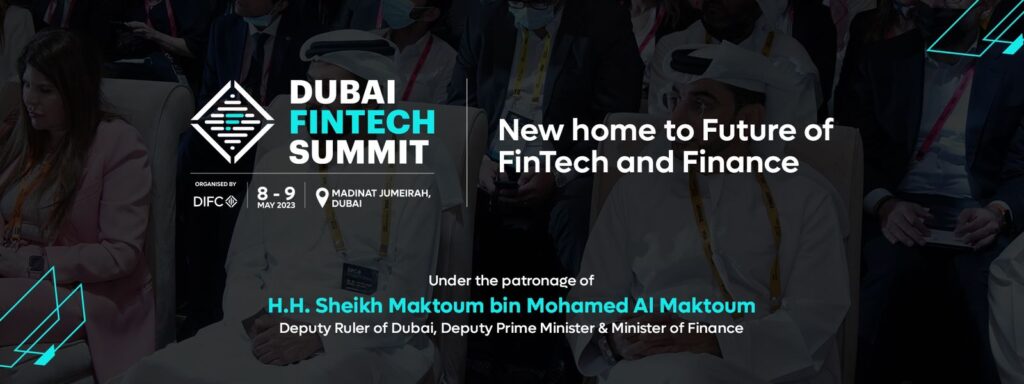Collaboration and not collision of interests is the emerging pathway for FinTech companies and banks to build a better economic system in the UAE and the world. This is the message coming out of Dubai International Financial Centre where 10 head honchos came together for the second of Dubai FinTech Summit (DFS) Dialogues, a precursor series to the main event on May 8 and 9.

Mohammad AlBlooshi
The 10 speakers deliberated the challenges which face the financial sector, and how the industry can de-risk while building sustainable institutions. Host Mohammad AlBlooshi, Head of DIFC Innovation Hub and FinTech Hive, said: “As an industry predicated on confidence and trust, we are currently seeing the banking sector experience a time of disruption. Given global headwinds, we have an opportunity to build more resilient institutions through collaboration between banks and FinTechs.”
According to recent research by Report Ocean, the global FinTech lending market was valued at approximately US$ 573 billion in 2021. It’s expected to grow at a healthy cumulative growth rate of more than 27.4% over the forecast period of 2022-2029.
Banks v FinTechs is history
The FinTech sector, widely recognised as a major competitor to banks, is expected to double in size from $135.9bn in 2021 to $266.9bn in 2027, according to a 2022 report by DIFC FinTech Hive. Additionally, with approximately 50 per cent of the MENA region currently unbanked or underbanked, FinTechs have been playing a crucial role in promoting inclusive economic growth in the region.

Ten head honchos from banks and FinTechs came together to discuss disruption in the industry. Trescon Global
However, a unanimous takeaway from all banks at the DFS Dialogue captured how both entities are in fact symbiotic. Sanjay Sethi, Senior Managing Director, Head of Global Transaction Banking at First Abu Dhabi Bank, said, “this is an age of collaboration and co-creation where leading financial institutions and pioneering FinTechs can embark on a journey of innovative discovery together. This is especially true when we look at opportunities to expand into new geographies, improve product capabilities, grow revenues, or scale or optimise our business faster and more efficiently. Alongside this, FinTech solutions in transaction banking are growing in agility every day.”
Earlier this year, the UAE Central Bank announced the implementation of its Digital Dirham currency strategy, which promises to be a critical step in the country’s payments industry. “As such, the synergy between banks and FinTechs proves to be unavoidable as the industry inches towards a cashless economy,” added AlBlooshi.
Enhancing trust
A report by Economist Impact and supported by Google has predicted that the financial services and banking industry will emerge as the primary spender for AI technology in the MENA. The industry will make up nearly 25 per cent of all AI investments in the region, with banking tech alone expected to contribute 13.6 per cent to the region’s gross domestic product by 2030.
Mehdi Tazi, Chief Operating Officer, Lean Technologies, stated, “I believe customers still trust banks more than FinTechs – they are larger more established institutions. However, something FinTechs do very well is streamlining processes when helping onboard customers into these larger banks. As a result, we are seeing a marriage between FinTech and banking that enhances the customer’s journey, ultimately building trust.”
The onset of Web 3.0 ushers in a transformative moment for financial services, capital markets and banking, shifting customer expectations and revolutionising the sector. The total transaction value of embedded finance is estimated to reach $7 trillion in 2026, as per Rakesh Reddy, CEO, Cloud4u, “This is particularly useful for Platform as a Service (PaaS) providers who will strongly benefit from this growth, undeniably becoming a key industry disruptor.”
Nilay Singh, Chief Executive Officer, State Bank of India, DIFC, pointed out, “We cannot ignore AI. It has to be adopted but cleverly and effectively, and this is where we need to understand what to outsource and when to collaborate.”
With a unified goal to enhance inclusive banking solutions for the region, traditional financial establishments are optimistic in growing partnerships with FinTech companies to bridge gaps and stay ahead of the curve strategically.
More such conversation starters will be on show at the Dubai FinTech Summit, to be held at Madinat Jumeirah on May 8-9. Visitors can purchase tickets with early bird prices available until 15 April 2023.
HEADLINE READERS GET DISCOUNTED TICKETS: As media partners, Headline UAE can get you 10% off on the big ticket to the most high-profile event in town. All you have to do is hit a like on the Instagram post to this story on our page and DM us. We will send you a code to use in the booking, so hurry!



























